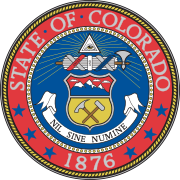
Prior to the Supreme Court's decision in Obergefell v. Hodges (2015), U.S. state constitutional amendments banning same-sex unions of several different types passed, banning legal recognition of same-sex unions in U.S. state constitutions, referred to by proponents as "defense of marriage amendments" or "marriage protection amendments." These state amendments are different from the proposed Federal Marriage Amendment, which would ban same-sex marriage in every U.S. state, and Section 2 of the Defense of Marriage Act, more commonly known as DOMA, which allowed the states not to recognize same-sex marriages from other states. The amendments define marriage as a union between one man and one woman and prevent civil unions or same-sex marriages from being legalized, though some of the amendments bar only the latter. The Obergefell decision in June 2015 invalidated these state constitutional amendments insofar as they prevented same-sex couples from marrying, even though the actual text of these amendments remain written into the state constitutions.

The 2006 United States elections were held on Tuesday, November 7, 2006 in the middle of Republican President George W. Bush's second term. Democrats won control of both houses of Congress for the first time since the 1994 elections.
Amendment 44 was a proposed amendment to the state statutes submitted for referendum in the 2006 general elections in the U.S. state of Colorado. The amendment proposed the legalization of the possession of one ounce or less of marijuana for any person twenty-one years of age and over, as long as marijuana use does not occur in public. The measure was eventually defeated at the polls by 60–40 percent.

Amendment 41 is a citizen initiative adopted by Colorado voters in the 2006 general election. Amendment 41 has three main sections.

Electoral reform in Colorado refers to efforts to change the voting laws in the Centennial State.
Ballot Measure 36 of 1996 increased the U.S. state of Oregon's minimum wage from $4.75 to $6.50 over a three-year period. The measure was approved by voters in the 5 November 1996 general election, with 769,725 votes in favor and 584,303 votes against. The measure was placed on the ballot as a result of initiative petition.
Ballot Measure 25 of 2002 increased Oregon's minimum wage from $6.50 to $6.90 per hour and required an annual increase to compensate for inflation in future years. Inflation is measured by the consumer price index. As of 2015, the minimum wage in Oregon is $9.25 an hour. The measure was approved in the November 5, 2002 general election with 645,016 votes in favor, 611,658 votes against.Itemized Measure Listings, Measure 25 page 17 The measure was placed on the ballot as a result of initiative petition.

Amendment 46, also known as the "Colorado Civil Rights Initiative, was a proposed initiative on the Colorado ballot for 2008. If ratified, Article II of the Colorado Constitution would have stated:
The State shall not discriminate against, or grant preferential treatment to, any individual or group on the basis of race, sex, color, ethnicity, or national origin in the operation of public employment, public education, or public contracting.
Buckley v. American Constitutional Law Foundation, Inc., 525 U.S. 182 (1999), was a United States Supreme Court case that dealt with the authority of states to regulate the electoral process, and the point at which state regulations of the electoral process violate the First Amendment freedoms.

Maine Question 4, formally An Act to Raise the Minimum Wage, is a citizen-initiated referendum question that appeared on the Maine November 8, 2016 statewide ballot. It sought to increase Maine's minimum wage from $7.50 per hour to $12 an hour by 2020, as well as increasing the minimum wage for tipped employees gradually to the same level by 2024. It would also index increases after 2024 to inflation. As the Maine Legislature and Governor Paul LePage declined to enact the proposal as written, it appeared on the ballot along with elections for President of the United States, Maine's two U.S. House seats, the Legislature, other statewide ballot questions, and various local elections. Efforts to place a competing, more moderate proposal alongside the citizen-initiated bill were unsuccessful.

Five referendums were held in Maine, United States on November 8, 2016 alongside state and national elections. All are citizen-initiated proposals, which cover:

Three ballot measures were certified for the November 6, 2018, general election in the state of Massachusetts.

The Fairness Project is a United States 501(c)(4) charitable organization created in October 2015.They promote general economic and social justice throughout the US by the use of ballot measures to circumvent deadlocks in law changes by the legislative and executive branches of government. They act as a national body by supporting state organizations and campaigns with targeted funding rather than by direct campaigning. They support the gathering of signatures to meet the variable requirements to trigger ballots in states and then aid the campaigns with early financial backing, strategic advice, and various campaign tools.
Initiative 77 was a Washington, D.C. voter-approved ballot initiative to phase out the minimum wage exemption for tipped employees. On June 19, 2018, the measure was passed by a more than 10% margin. In October 2018, the initiative was repealed by the Council of the District of Columbia before it was enacted.

Colorado state elections in 2020 will be held on Tuesday, November 3, 2020. The deadline to register and receive a ballot by mail in Colorado is October 26, 2020. Voters may register in person and vote or pick up a ballot at Voter Service Centers October 19 through 7 p.m. November 3, 2020. Colorado exclusively uses a vote-by-mail system, although voters may choose to vote in person at Voter Service and Polling Centers (VSPCs).
Florida state elections in 2020 will be held on Tuesday, November 3, 2020. Aside from its presidential primaries held on March 17, its primary elections were held on August 18, 2020.






